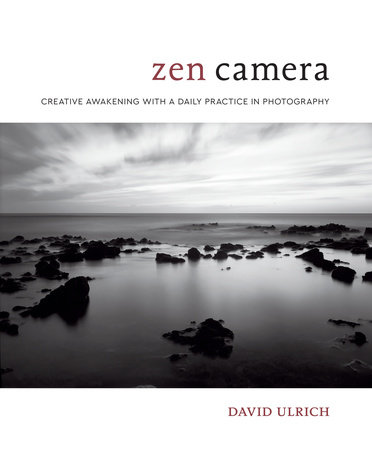Excerpt
Zen Camera
INTRODUCTION
CONTRIBUTE YOUR VERSEPhotography is a powerful form of visual expression, available to everyone.
Each of you is likely to have poised in your pocket a highly advanced camera, ready to take a photograph in the very moment you feel inspired. This device is capable of taking vibrant photographs in all but the most severe lighting situations or extreme conditions. Digital cameras, especially those in smartphones, have revolutionized the way we approach the world and interact with others. No experience is complete, no meal finished, no friendship consummated until we have taken a picture. The photograph replies,
I was here. I witnessed this event, met this person, or relished this experience.
All too often, today’s technology becomes a distraction that siphons your energy and diffuses your attention. But when you use a camera to look out at the world, your eyes may light on a gesture, an image, an expression—and you experience the indispensable spark of awareness and presence. It’s a flash of insight that can pierce the fog of your preoccupied mind and bring you closer to the living moment. The camera can help liberate your awareness to see clearly and keenly, to know something about who you really are, and to open your being to an unfading swell of empathy and compassion for those you meet along the way. The camera confirms the “I am” of being and existing in the world.
Zen Camera is not only about photography; it is about you. In six lessons, it guides you to cultivating creativity with a camera and in all areas of your life. It teaches you about deep perception, learning to see, and awakening all of your senses to the present moment. It helps you realize Socrates’s great directive,
Know thyself, and uncover the seeds of the authentic self, hidden behind multiple layers of conditioning and socialization. And yes, you’ll also learn to take better photographs and to communicate effectively through images.
The six lessons found in the book are cyclic and hold many keys for your evolving work. They are relevant for anyone, whether you’re a professional or have recently discovered a budding interest in using your smartphone camera. The lessons can be adapted to different stages of development. You may have taken thousands of photos and the technical aspects are familiar to you, but you’re looking for fresh inspiration. Or you might have an inkling of what you want to express behind the camera but don’t know the mechanics beyond point and click. Either way, this book is for you. The minimum time needed to fulfill a first pass of the lessons would be twelve to fifteen weeks, akin to a college semester, and they can be circled back to over the years. For me, the better part of a lifetime has been spent in their service with the aim of personal and artistic awakening.
This book has been taking shape in my mind for forty years. I am a professor of photography in a traditional college setting and have taught a wide variety of photography classes and workshops to people of diverse ages, cultural backgrounds, and professions. I’ve taught children and adults in many places in the United States, including my current home of Hawai‘i, and developed photography programs in Hong Kong and China. Some of my students aspire to make photography a career, while others are searching for the richness of creative expression in their personal lives. I have seen countless students discover the great joy and fulfillment that comes from creative expression. They find hope and confidence, and give voice to features of their identity, either previously hidden or once blanketed in fear and uncertainty. When they uncover their unique vision, they awaken to their own potential.
As my students adopt photography as a means of personal growth, they begin to stretch beyond their perceived boundaries of thought and expression. I have been touched to the core and learned so much from their observations of the world through a camera. Their requests—for tools, exercises, and guidance—created this book. Its six lessons have proven their worth to generations of students. To my students, I owe my deepest gratitude.




